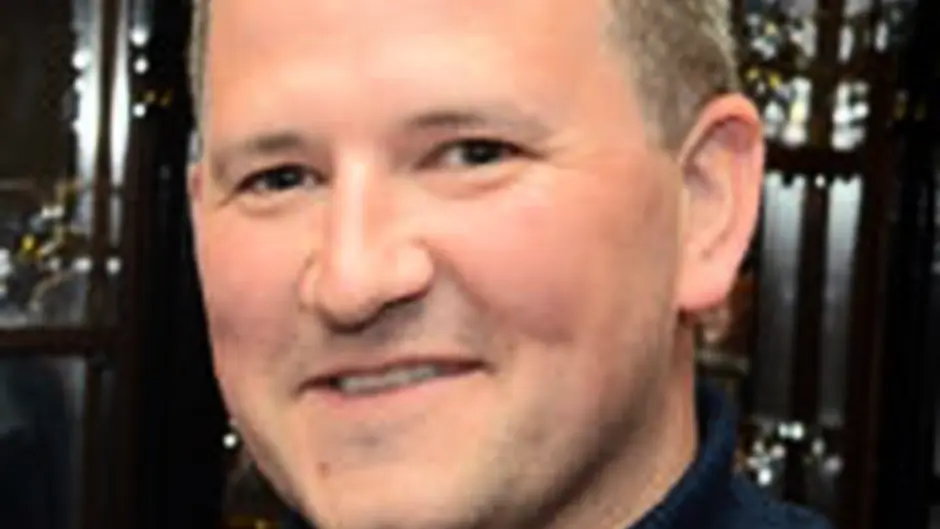The jury in the Graham Dwyer murder trial have been told they can only convict him if they are satisfied he stabbed Elaine O'Hara to death in pursuit of sexual gratification.
THE jury in the Graham Dwyer murder trial have been told they can only convict him if they are satisfied he stabbed Elaine O’Hara to death in pursuit of sexual gratification.
And, as he charged the jury of seven men and five women ahead of their deliberations on the case earlier this week, Judge Tony Hunt also said that the case against the architect was circumstantial, or indirect – but added that such evidence can be solid and strong.
The 42-year-old is charged with murdering the Dubliner at Killakee, Rathfarnham, Dublin on 22nd August 2012, hours after she was discharged from a mental health hospital. The Bandon-educated father of three of Kerrymount Close, Foxrock in Dublin has pleaded not guilty to murdering the 36-year-old childcare worker.
Mr Justice Tony Hunt told the jury: ‘You have to be satisfied specifically, not just that she was murdered, but that she was murdered by being stabbed by Graham Dwyer in pursuit of sexual or some kind of gratification,’ he said.
He added: ‘Self-killing does not constitute murder.’
‘You have to be satisfied beyond a reasonable doubt that Graham Dwyer caused Ms O’Hara’s death in the manner suggested,’ he said. ‘You’re not being asked by the prosecution to consider anything else.’
Regarding mobile phones that the State attributed to the accused, he said they had to be satisfied beyond a reasonable doubt of the connection.
‘It seems to me that if they’re not referable to Mr Dwyer, they’re referable to someone whose life bears astonishing similarities to the life of Mr Dwyer,’ he said.
‘If the circumstantial evidence surrounding the mobile phones … doesn’t convince you beyond a reasonable doubt, I suggest you go no further with the case,’ he said. ‘You need to rely on Mr Dwyer being the operator of those phones to bring him to the shore at 6pm on the 22nd of August and if you don’t bring him there, where do you go with the rest?’
He was referring to the last text message sent in the case, which the State said had been a direction from the accused to the deceased to ‘go down to shore and wait’.
‘You can’t condemn a man to a murder conviction while there are any lingering doubts in your minds,’ he said.
He told them to blow away ‘all the hoopla and fuss’ that seemed to have attached itself to this case.
‘He comes before you as a man with no previous convictions,’ the judge told the jury of seven men and five women.
The judge said they had heard some not particularly attractive things about Mr Dwyer, but he added: ‘He is not on trial for those unsavoury things you have heard.’
Earlier, Graham Dwyer was described as a sadistic and brutal pervert – who had only murder on his mind.
The claim was made by State prosecutor Sean Guerin SC as he urged the jury in Mr Dwyer’s trial to find the architect guilty of the murder of Elaine O’Hara.
He also argued that documents allegedly written by the accused that spoke of rape and murder had proved he was a sadistic and brutal pervert.
And he told the jury: ‘If you accept what he said in these documents, there is evidence to convict him of murder.’
Mr Guerin made his comments as he finished his closing speech to the jury in the case – after 32 days of evidence to them.
Mr Guerin said the first feature of a successful plan was that the location would be isolated – to reduce the possibility of the alleged crime scene being found.
‘You can certainly tick that box in relation to what happened to Elaine O’Hara,’ he said.
The phone user had mentioned a hunting knife as being part of his tool kit for such a killing and Mr Guerin noted that Mr Dwyer had a hunting knife delivered to his office the day before the alleged murder.
Later, his defence lawyer asked the jury to acquit him – and accused gardai of ignoring the theory that Elaine O’Hara could have killed herself.
‘Whenever evidence pops up in this case that might suggest suicide, the gardai ignore it or say it didn’t exist,’ Remy Farrell SC told the jury in a hard-hitting, three-hour speech.
He also told the jury that the public expected them to convict Mr Dwyer – but he urged them to acquit.
‘You are expected to go with your gut. You are expected to convict Mr Dwyer without looking at the evidence. If you acquit, you will be doing the unpopular thing, make no mistake about it.’
And he also said there was simply too big a gap in the prosecution case against Mr Dwyer for them to convict him – and that it was decidedly wobbly.
In a packed court 13 of the Criminal Courts of Justice complex, Mr Farrell also told the jury that they only had one chance at coming to a verdict in the case – and they could not take it back.
‘You can’t reverse your verdict, you can’t say you got it wrong. Ask yourself this: what will I think a week from now? A month from now?’ Mr Farrell said.
He made the comments in his closing speech to the jury in the mammoth trial.
He said some aspects of the evidence were not only repellent, but disgusting.
Mr Farrell also conceded that it was hard to argue that some of the items that the jury had seen in that case weren’t misogynistic.
He said: ‘You have seen Mr Dwyer on video engaging in explicit sexual acts and however abhorrent, wrong, unusual or disgusting you rated this, you have seen him in a particular way. That begs the question, how do you take him seriously?’
‘I am not here to try to convince you that Mr Dwyer is a nice guy.’
Mr Farrell said the jury was entitled to have formed their own views on certain items of evidence, such as the telephone traffic relied on by the State.
But, he insisted, when they put all the evidence together they were left with what he said was a gaping chasm.
‘Every time prosecution try to tell you what happened in Killakee on August 22, they come up short. The prosecution say Ms O’Hara was stabbed. That is the prosecution case. But look at the basis for that contention and you see that it is not real evidence, it is actually fantasy material.’
He claimed that prosecutors had early on introduced the evidence of state pathologist Professor Michael Curtis, in which he said there was no cause of death established.
But, he said, that evidence was before the jury was shown videos of Mr Dwyer with three women, including Ms O’Hara, and he asked them: ‘Do any of you really remember much of the evidence before the videos?’
‘Anything regarding suicide has effectively been brushed under the carpet,’ he said.
‘If Mr Dwyer stabbed Ms O’Hara repeatedly it is inconceivable there would not have been knife marks on the bones.
‘That evidence blows the prosecution case out of the water.’
The jury was sent out to deliberate on Tuesday evening and, at time of going to press, were still deliberating.









